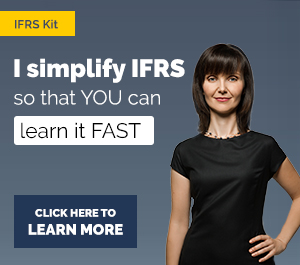Accounting for “buy two + get one free”
Question
We are a FMCG (“fast-moving consumption goods”) company and we often offer the promotional packages “buy 2 + get 1 free”.
How shall we account for these offers?
Can we recognize the revenue for 2 products, expenses for the same products as costs of sales and then expenses for one product as marketing expenses?
Answer
The standard IFRS 15 Revenue from Contracts with Customers requires you, in reference to this question, to:
- Identify the contract with the customer.
No problem here, because the contract is the purchase when the customer takes your offer. It’s a “simplified” contract. - Identify performance obligations in the contract.
Here, there are 3 performance obligations, as you need to deliver 3 products. - Determine the transaction price.
The transaction price here is the price for 2 products (as 1 is for free). - Allocate the transaction price to the performance obligations.
In this case, you need to allocate the total transaction price for 2 products to 3 performance obligations. - Recognize revenue when or as the performance obligation is satisfied.
In this case, you should recognize the revenue for each product when the product is delivered.
To sum it up, you should spread the total price received from the customer to all products sold and account for revenue from the sale of every product.
Example
ABC sells chocolate bars and runs a “3 for 2” promotion campaign (buy 3, pay for 2). The selling price of 1 chocolate bar is CU 6.
In line with IFRS 15, ABC’s total transaction price is CU 12 (2*12) and this needs to be allocated to 3 chocolate bars. Thus, ABC recognizes revenue from sale of 1 chocolate bar amounting to CU 4 (12/3).
In some cases, it won’t make any difference in the accounting for revenues, because ABC sells all 3 products at the same time.
However, it can happen that ABC delivers just 2 products at sale and due to shortage of stock, it promises to deliver the 3rd product after the year-end.
In this case, the journal entry is as follows:
-
Debit Cash: CU 12
-
Credit Revenues from sales of goods: CU 8 (2*4)
-
Credit Contract liability: CU 4
ABC can recognize the revenue from the sale of 3rd product only when it is delivered:
-
Debit Contract liability: CU 4
-
Credit Revenues from sales of goods: CU 4
In these transactions, cost of sale related to the “free” product is never recognized as a marketing expense, but as a cost of sale, because some revenue is allocated also to the free product.
You can read more about accounting for discounts here.
JOIN OUR FREE NEWSLETTER AND GET
report "Top 7 IFRS Mistakes" + free IFRS mini-course
Please check your inbox to confirm your subscription.
Leave a Reply Cancel reply
Recent Comments
- Silvia on How to Account for Decommissioning Provision under IFRS
- Silvia on What is the lease term of cancellable property rental contracts under IFRS 16?
- James Carter on How to Account for Decommissioning Provision under IFRS
- Moses Felix on IAS 16 Property, Plant and Equipment – summary
- Moses Felix on Summary of IFRS 5 Non-current Assets Held for Sale and Discontinued Operations
Categories
- Accounting Policies and Estimates (14)
- Consolidation and Groups (24)
- Current Assets (21)
- Financial Instruments (54)
- Financial Statements (48)
- Foreign Currency (9)
- IFRS Videos (65)
- Insurance (3)
- Most popular (6)
- Non-current Assets (54)
- Other Topics (15)
- Provisions and Other Liabilities (44)
- Revenue Recognition (26)


